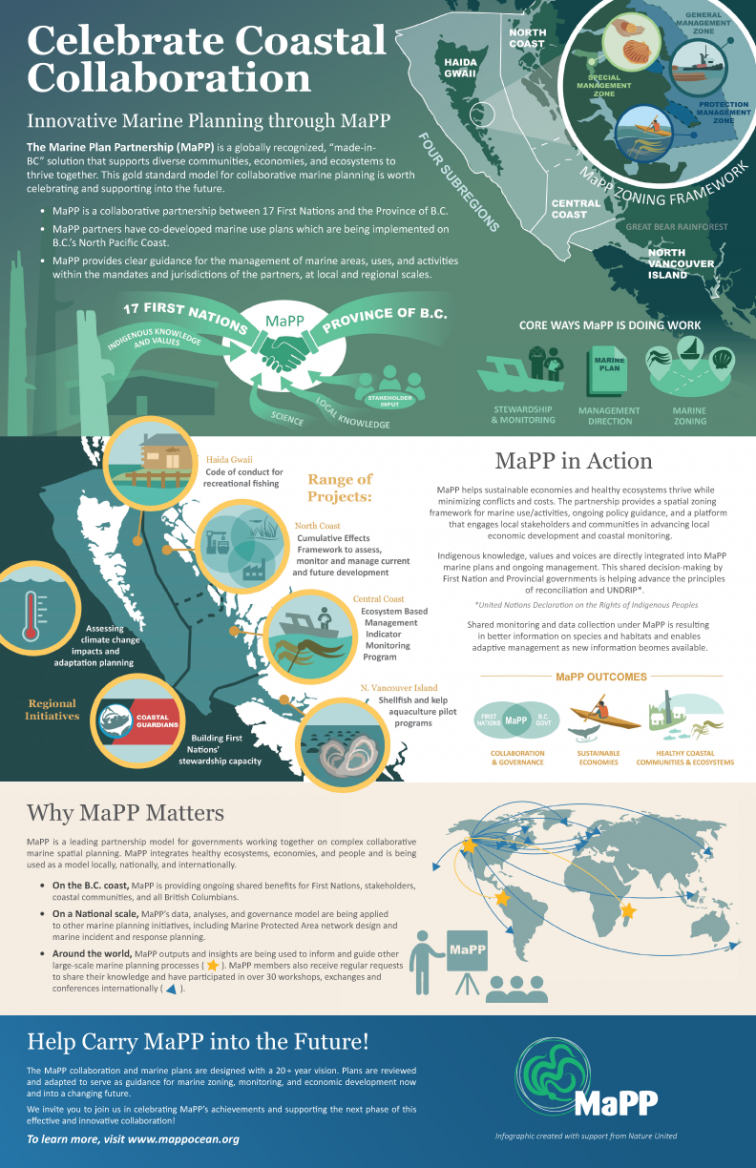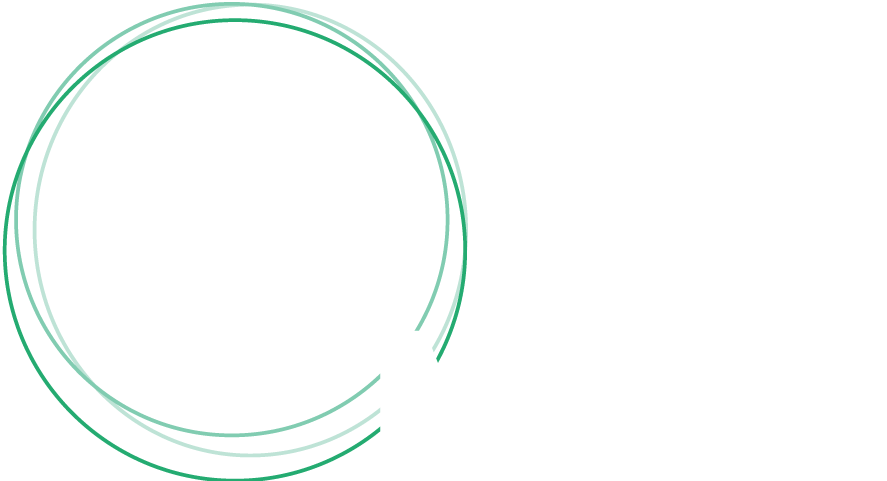The Marine Plan Partnership
The Marine Plan Partnership for the North Pacific Coast (MaPP) is a co-led process between 17 First Nations and the Government of the Province of British Columbia that developed and is implementing plans for marine uses on B.C.’s North Pacific Coast, now and into the future. The MaPP initiative is notable also for the diversity of stakeholders involved and the number of marine uses, activities and values addressed.
The MaPP initiative was formalized in November 2011 through a Letter of Intent between the provincial government and First Nations organizations. Four marine plans were signed in April 2015, a regional action framework was completed in May 2016 and plan implementation agreements were announced in August 2016.
About marine planning
Marine planning is happening in many countries around the world. It is the marine equivalent of land-use or urban planning. As our oceans become busier with increasing commercial, industrial and recreational activity, there is a growing need for marine planning to help guide decisions about the use of our oceans.
The MaPP marine plans being implemented will help to create opportunities for sustainable economic development, support the well-being of coastal communities and protect the marine environment.
Ecosystem-based management framework
An ecosystem-based management (EBM) framework provided the foundation for the development of the marine plans. EBM focuses on human well-being, ecological integrity and governance. The framework was informed by local and traditional knowledge and by input and advice from scientists and stakeholder advisory committees. Learn about EBM and the MaPP governance and process.
Marine plans
The MaPP plan area was divided into four sub-regions, Haida Gwaii, North Coast, Central Coast and North Vancouver Island.
The MaPP planning teams completed four sub-regional marine plans and a regional action framework. The sub-regional plans provide clear recommendations for the management of marine areas, uses and activities. They include recommendations to develop and maintain sustainable economies for coastal communities and resilient marine ecosystems. The regional action framework identifies recommendations for advancing common sub-regional interests that are of regional significance and that can benefit from integrated and joint actions.
The MaPP marine plans provide recommendations for decision makers and guidance for land administrators, project planners, businesses, First Nations, local governments, and other stakeholders. The MaPP marine plans are intended to balance sustainable economic development with environmental stewardship, help improve the efficiency of approval processes within existing policies and procedures, reduce spatial conflicts among marine users, and provide business certainty.
The marine plans do not address management of uses and activities that the Province considers to be federal government jurisdiction. Issues requiring federal government involvement would be subject to consultations with the federal government.
Stakeholder input and advice
During the planning phase each planning team received advice and input from an advisory committee. The MaPP advisory committees met approximately every two months. The committee members represented a wide variety of marine uses and activities, including commercial businesses and industries, local government, marine conservation, academic institutions, non-commercial users, and local community members. In addition, the Science Advisory Committee gave expert scientific and technical advice to assist the MaPP initiative in meeting its objectives.
In the implementation phase, stakeholders will be consulted for input on planned activities, to review report findings, to discuss updates to the plans and other issues of interest.
Public input
Members of the public provided input on drafts of the four sub-regional plans in spring 2014. Public opportunities to give feedback on implementation progress will be considered, as needed.
Project milestones
The MaPP initiative released final plans in April 2015.
The Regional Action Framework was completed in May 2016.
Sub-regional Implementation Agreements were announced in August 2016.
Publications about the MaPP planning process
MaPP has published the following articles in the academic journal, Marine Policy:
- The Marine Plan Partnership for the North Pacific Coast – MaPP: A collaborative and co-led marine planning process in British Columbia, Marine Policy, 2020
- Marine Plan Partnership for the North Pacific Coast: Engagement and communication with stakeholders and the public, Marine Policy, 2021
Implementation priorities
Implementation priorities for the four sub-regional marine plans and the Regional Action Framework were identified during the planning phase and have been further scoped through implementation work planning and budgeting. The goal is to implement all of the strategies in these documents over time, but the initial focus is on the first five years of implementation.
Refer to sub-regional marine plans, marine plan overviews and the Regional Action Framework for details about implementation priorities.
Infographic – Celebrate Coastal Collaboration

Click here for PDF version of infographic



